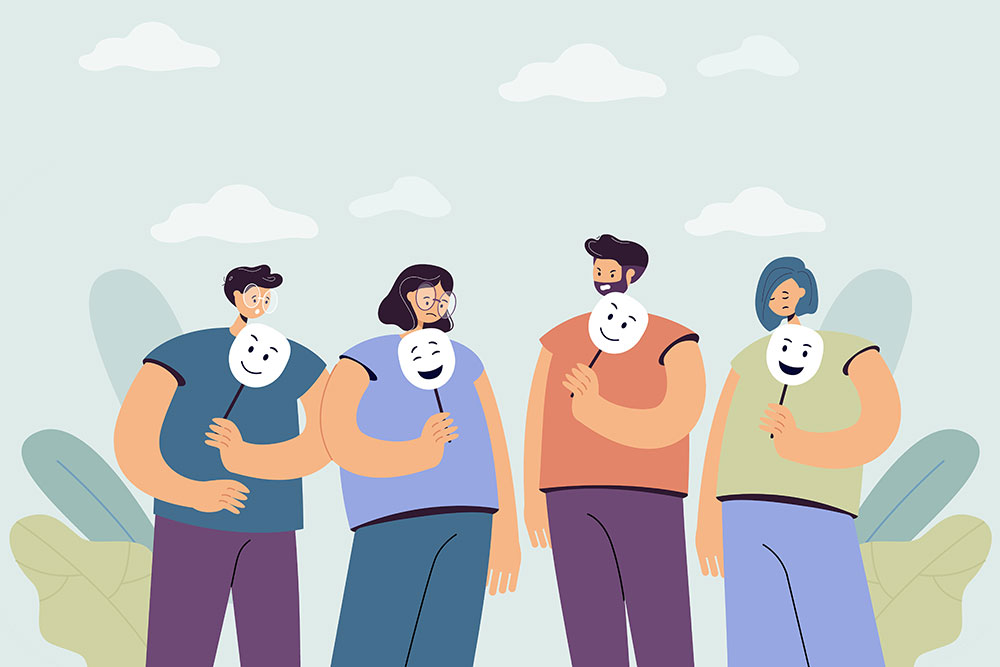Depression: Symptoms, Causes, Risk Factors, and Treatment
Published on June 6th, 2018
Updated on January 2nd, 2024

When you hear the word depression, you may picture someone who is very blue or sad. This image is often associated with depression, but sadness and feeling down in the dumps is not the only way depressed people feel. Depression can cause many uncomfortable feelings, so it is important to seek help if you recognize signs of a depressed mood.
Depression can be a temporary or chronic condition that is more than just sadness. It creates many other negative feelings, like numbness, despondence, and low self-esteem. Some even describe it as feeling like there is a constant weight or pressure on their shoulders or in their chest. Depression is a heavy and sometimes debilitating condition. It can be very challenging to live with when you do not have proper coping skills.
Symptoms Of Depression
Symptoms of depression are challenging to live with. They affect many areas of a person’s life and make each day challenging. Symptoms of depression are manageable, but take a lot of effort to control. Typically, a person needs help from a mental health professional when they are learning how to cope with their depressed mood.
Sponsored by

Choose a therapist to work with and start healing with 20% off from BetterHelp.
Click HereThere are many different symptoms for depression that range from mild to severe. Such symptoms include:
- Sadness
- Crying spells
- Feeling numb or struggling to feel emotions
- Irritability and mood swings
- Fatigue or exhaustion
- A lack of motivation
- A loss of interest in socializing
- A loss of interest in enjoyable activities
- Anxiety
- A tight feeling in your chest
- Headaches
- Feeling like you are in a fog
- Difficulty concentrating
- A heavy feeling throughout the body
- Self-defeating thoughts
- Panic attacks
- Despondence
- Feelings of hopelessness, helplessness, or unlovability
- Suicidal thoughts
Causes And Risk Factors Of Depression
Many factors contribute to the onset of depression. Some cases of depression are situational, while others are based on prolonged issues. Each type of depression is triggered by different circumstances.
Common causes and risk factors of depression include:
Difficulty coping with stress and challenging circumstances
It is important to have proper coping skills for stress, but sometimes stress can be difficult to control. Unexpected or overwhelming challenges in life can be difficult to cope with, and some may develop a depressed mood as a result.
Different circumstances can cause a person to feel depressed. Such circumstances include:
- Major or unexpected change
- Unusually high levels of stress
- Experiencing a traumatic event or coping with abuse
- Relationship issues
- Grief and loss
People who struggle with these kinds of changes often feel out of control. Their mood changes and they may struggle to come to terms with the challenges they face. This struggle can result in a depressed mood.
Environment
Certain environments can cause a person to feel depressed. If a person grows up in a chaotic or abusive environment, they are at higher risk of suffering from depression.
Depression can also occur from a change in the environment. A person can feel depressed while adjusting to a move or new living situation. A person may also begin to feel depressed in the winter months. This experience is referred to as seasonal depression or seasonal affective disorder.

Family history of depression
Depression and mood disorders can run in families. A person is at higher risk for depression if they have a family member who suffers from anxiety, depression, or another mental health issue. Inheriting depression can be due to the following:
- Not learning healthy ways to cope with depression
- Genetic influence
- Having depressive thought patterns and behaviors modeled by a parent
- Family patterns of physical, mental, or emotional neglect
- Family history of addiction or alcoholism
Treatment Of Depression
Depression is common and has the potential to affect an affected person’s overall health and wellness. That is why it is important to talk to your doctor about treatment for depression. A doctor will be able to make recommendations based on your symptoms.
Your doctor will likely recommend attending therapy. Therapy will help you cope with emotional issues related to depression. Psychiatric medication may also be recommended.
Therapeutic techniques that help with depression include:
Dialectical Behavior Therapy (DBT). DBT is a form of therapy that uses mindfulness exercises to teach healthy thought and emotional patterns. DBT can help by teaching you how to cope with your thoughts and feelings when depressed.
Cognitive Behavioral Therapy (CBT). CBT helps you understand how your thoughts and behaviors can influence your depression. It will also teach you how to restructure your thoughts to be less harmful to your self-esteem.
Talk therapy. Many people who are depressed feel that talking about their depression helps. They report feeling better after being able to talk about how things in their lives affect them. This form of therapy is particularly useful for depression that occurs from environmental influences or unexpected changes.
Sponsored by

Find an affordable therapist online with 20% off from BetterHelp.
Click Here






Leave A Reply